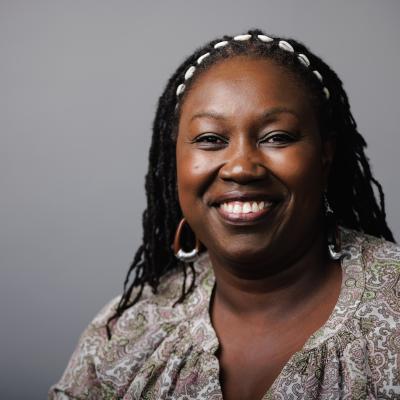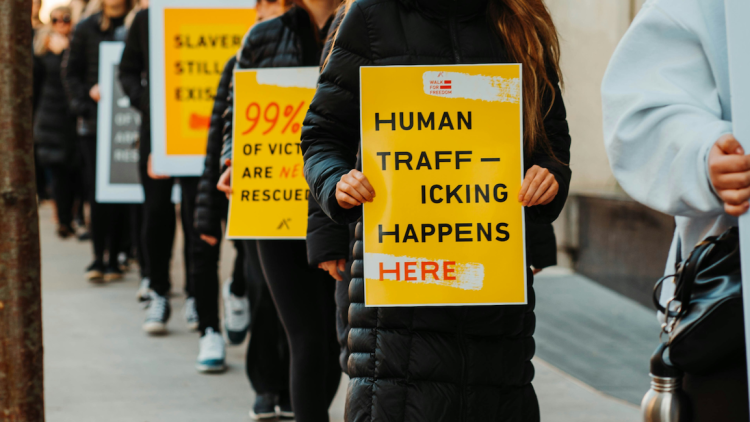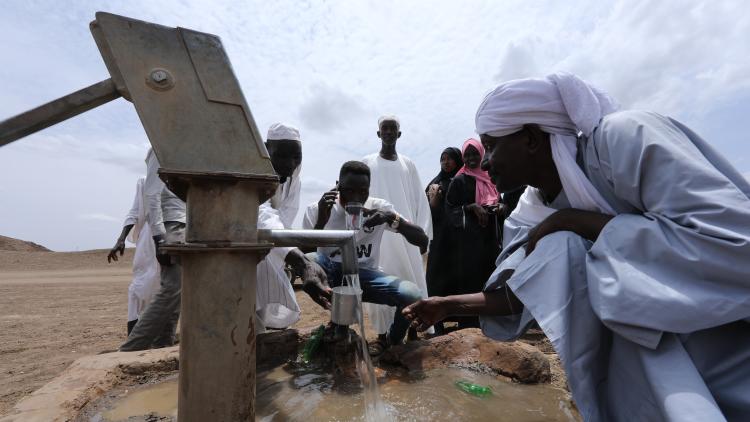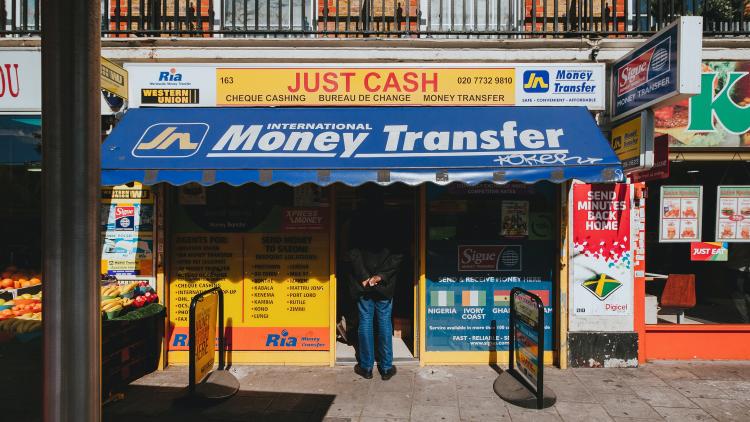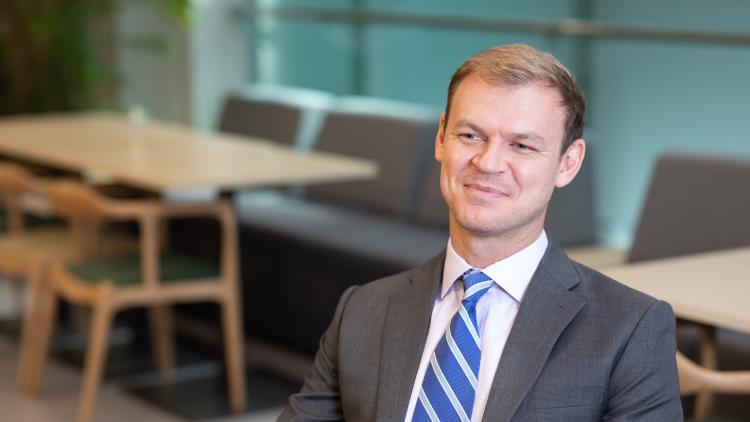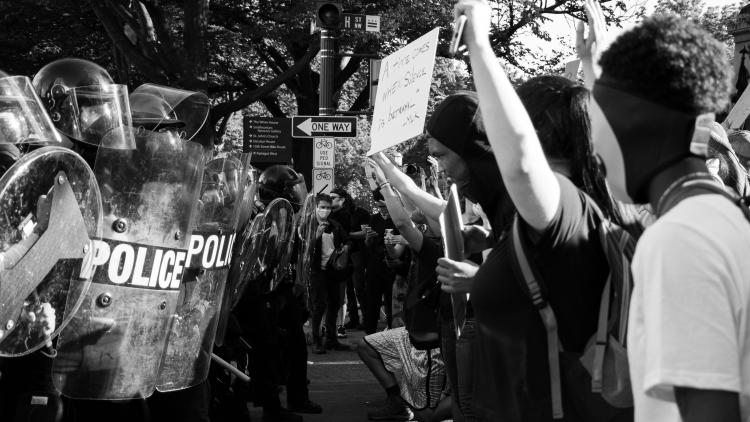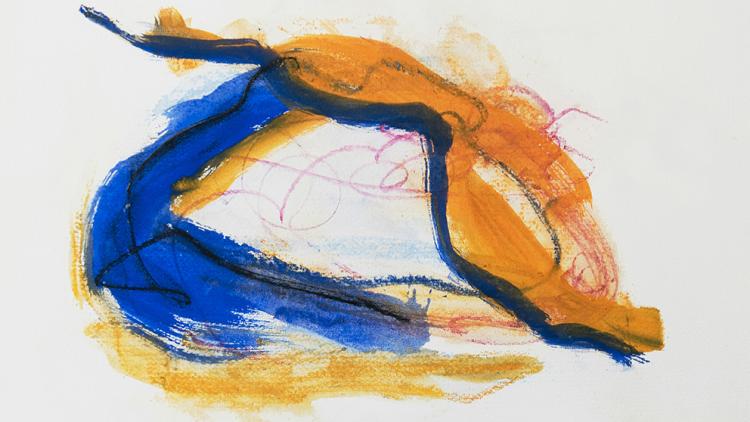MSc Humanitarian Action (Online)
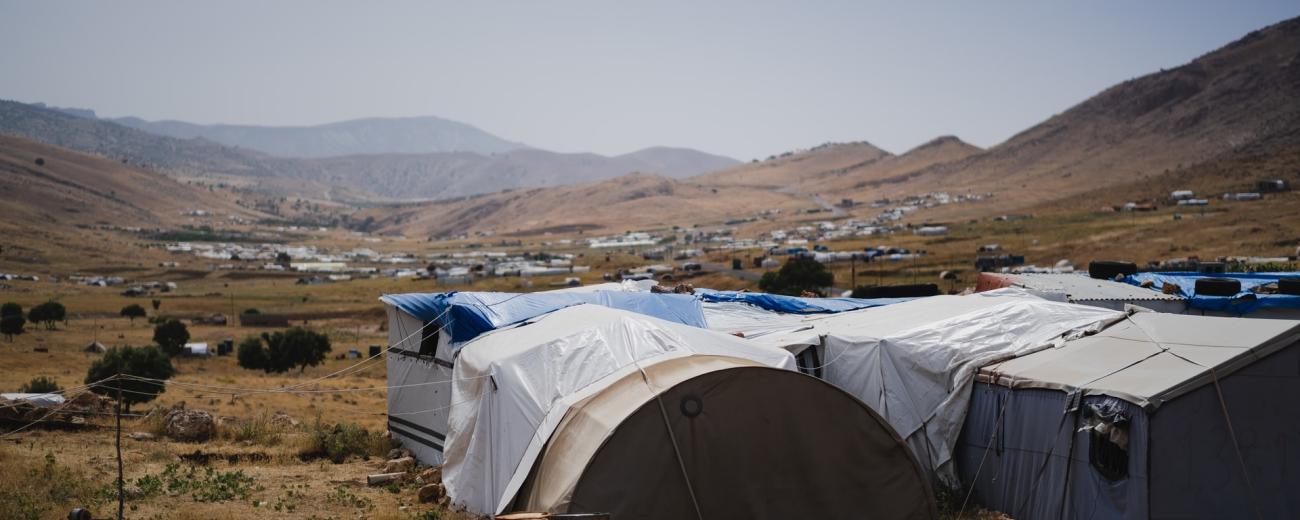

Key information
- Duration
- 2-years (Max. 3-years)
- Start of programme
- April / October
- Attendance mode
- Online learning (part-time)
- Fees
-
MA/MSc: £12,000
PGDip/PGCert: available as exit awards. - Entry requirements
-
We will consider all applications with 2:2 (or international equivalent) or higher. In addition to degree classification we take into account other elements of the application such as supporting statement. References are optional, but can help build a stronger application if you fall below the 2:2 requirement or have non-traditional qualifications.
Course overview
MSc Humanitarian Action (Online) is an online degree that engages critically with the history, politics and practice of humanitarian action. Students take the core module, followed by a selection of elective modules and a final dissertation.
How and where is humanitarian aid given, and how does it interact with the political and military complexities of emergency contexts? How have critiques of humanitarian aid, including from recipients, impacted on humanitarian action? How does South-to-South assistance in emergencies change, challenge or complement the concepts and practice of humanitarianism?
Why study MSc Humanitarian Action (Online) at SOAS
- SOAS is ranked 2nd in the world for Development Studies (QS World University Rankings 2023).
- We're ranked 6th in UK for graduate employability (QS World University Rankings 2023).
- Our academic staff create an intellectually stimulating and challenging space across the many branches of international development and humanitarianism that make up Development Studies.
- All modules engage with questions of climate crisis, recognising its impact and interaction with processes of inequality and change.
- Our staff specialise in a range of thematic areas including sustainability and climate change, migration and displacement, conflict, humanitarian action, labour, political ecology, and aid and institutions.
- Combined with exceptional resources and our interdisciplinary approach, we offer a unique learning and research opportunity for our diverse and vibrant student community.
What you will study
The core module for the MSc Humanitarian Action has three parts: it starts with the groundwork in humanitarian principles and architecture, and then presents the critiques and voices from the Global South. It deals with practice and the contradictory contexts for humanitarian work, exploring the politics of security decisions, Responsibility to Protect, witness and asylum. This part presents the opportunity to examine and assess competing priorities in situations of multi-layered insecurity.
This module draws on a range of literatures, including the academic work on humanitarianism, publications, data sets and relevant websites from NGOs, humanitarian thinktanks and UN bodies. It also includes blogs, crowd-sourced data and journals from the Global South.
The module challenges the conventional tropes of North to South assistance by examining how agents within the Global South have responded to humanitarian disaster, and also how humanitarianism has been transformed with the establishment of operations in Europe to assist refugees and other destitute people migrating across the Mediterranean.
Analytical and empirical depth will be provided through a series of case studies (Calais, Sri Lanka, Syria, for example) that examine the practicalities and institutional learning in famines and complex emergencies. The module presents processes and mechanisms of institutional learning as well as the persistence of some challenges in approach and delivery.
Who should apply?
We welcome applications from those who have worked in the field of development and/or conflict. We also encourage those without relevant work experience who can demonstrate a strong interest in humanitarianism and have a strong first degree, to apply.
Explore
Structure
Students must take 180 credits comprised of one core and three elective modules totalling 120 taught credits, four supporting mini modules and a 60 credit dissertation.
Core modules
A core module is required for the degree programme, so must always be taken and passed before you move on to the next year of your programme. Core modules are offered in every session.
Elective modules
These are designed to help students design their own intellectual journey while maintaining a strong grasp of the fundamentals. Elective modules can be chosen from a list of subjects offered across SOAS' portfolio of programmes.
Dissertation
| Module | Credits | Type |
|---|---|---|
| Dissertation in Development Studies | 60 | Core |
Core module
| Module | Credits | Type |
|---|---|---|
| Humanitarian Principles and Practice | 30 | Core |
Students must choose a minimum of one elective from Group A. Students may choose a maximum of one elective from a further list of Open Options
Development Studies
| Type | Module Title | Apr ‘24 | Oct ‘24 | Apr ‘25 | Oct ‘25 |
Core
| The Political Economy and Sociology of Development | * | * | * | * |
| Humanitarian Principles and Practice | * | * | * | * | |
| List A | Understanding Violence, Conflict and Development | * | * | ||
| Critical Insights in Forced Migration | * | * | |||
| Human and Critical Security Studies | * | * | |||
| The Politics of Gender and Feminisms in Development | * | * | |||
| List B | Urban Sustainability | * | * | ||
| Food Security and Social Protection | * | * | |||
| Climate Change and Development | * | * | * | * | |
| Understanding Sustainable Development | * | * | * | * | |
Dissertation
| Dissertation (Stage 1) | * | * | * | * |
| Dissertation (Stage 2) | * | * | * | * | |
| Dissertation (Stage 3) | * | * | * | * | |
| Dissertation (Stage 4) | * | * | * | * |
Important notice
The information on the website reflects the intended programme structure against the given academic session. The modules are indicative options of the content students can expect and are/have been previously taught as part of these programmes. However, this information is published a long time in advance of enrolment and module content and availability is subject to change.
Teaching and learning
This programme is taught 100% online through our VLE. In the VLE you will have access to learning materials and course resources anytime so you can fit your studies around your existing commitments.
For each module, students will be provided with access, through both the SOAS Library and the University of London’s Online Library, to all necessary materials from a range of appropriate sources. A key component of the student experience will be peer to peer learning, with students enrolled in discussion forums.
Study timetable
In addition to a dedicated Associate Tutor, a study timetable is provided for each module and for the overall programme to help you to organise your time.
The programme is broken down into two study sessions per year. Each subject module lasts 16 weeks, followed by a research mini module lasting 8 weeks.
Sample study timetable
| Activity | Duration |
|---|---|
| Substantive module | 16 weeks |
| Reading weeks | 2 weeks |
| Research mini module | 6 weeks |
| Reading weeks | 2 weeks |
Assessment
Each module is assessed by coursework through online written assessments (‘e-tivities’*). There are no exams. The e-tivities provide formative and summative feedback to students as a means of monitoring their progress and encouraging areas in which they can improve.
* An 'e-tivity' is a framework for online, active and interactive learning following a format that states clearly to the students its 'Purpose'; the 'Task' at hand; the contribution or 'Response' type; and the 'Outcome' (Salmon, G. (2002) E-tivities: The Key to Active Online Learning, New York and London: Routledge Falmer.)
Research training and dissertation
Research training is a key feature of this programme, the dissertation module is presented in four development parts, which will follow each of your module sessions. Research modules one and three are formative modules only, and are not assessed.
The dissertation is assessed by the submission of a research proposal in research module 2 and the final dissertation of no more than 10,000 words in research module four).
The research proposal is compulsory for students going on to do a PGDip or MA; MA students must submit a dissertation at the end of research module four.
SOAS Library
SOAS Library is one of the world's most important academic libraries for the study of Africa, Asia and the Middle East, attracting scholars from all over the world. The Library houses over 1.2 million volumes, together with significant archival holdings, special collections and a growing network of electronic resources.
Pre-entry reading
- Ahmad, A. and J. Smith (eds), (2018) Humanitarian Action and Ethics London, Zed Books.
- De Waal, A. Mass Starvation: The history and future of famine. Cambridge, Polity Press.
- Duffield, M. (2018). Post-humanitarianism. Governing precarity in the digital world. Cambridge, Polity.
- Keen, D. (2008). Complex Emergencies. Cambridge, Polity Press.
- Marriage, Z. (2006). Not Breaking the Rules, Not Playing the Game. International Assistance to Countries at War. London, Hurst &co.
Fees and funding
| MA/MSc | PGDip* | PGCert* |
|---|---|---|
| £12,000 | See below | See below |
*PGDip and PGCert are available as exit awards.
- See online and distance learning fees for further information.
Pay as you learn
Our online programmes can be paid in full at the time of enrolment or on a pay as you learn basis. Pay as you learn means you pay for modules prior to enrolment (£3,000 each).
Postgraduate loans
If you have been a resident in England for three years you may be eligible. For more information, please see postgraduate funding and finance.
Application
To make an application, please visit how to apply (ODL).
Employment
A degree from the Department of Development Studies at SOAS will further develop your understanding of the world and how society is organised, with specific focus on violence and conflict, the role of aid, refugees and forced migration. Graduates leave with a range of transferable skills, including critical thinking, analytical skills and cultural awareness.
Recent graduates have been hired by:
- Amnesty International
- BBC World Service
- British Embassy Brussels
- Department for International Development
- Economist Intelligence Unit (EIU)
- Embassy of Japan
- Government of Pakistan
- Hong Kong Economic & Trade Office
- International Committee of the Red Cross (ICRC)
- International Labour Organization (ILO)
- KPMG LLP
- Médecins Sans Frontières (MSF)
- National Health and Medical Research Council
- Overseas Development Institute
- Oxfam
- Royal Norwegian Embassy
- Save the Children UK
- The World Bank
- Thinking Beyond Borders
- US Department of State
- UN World Food Programme
- UN High Commissioner for Refugees
- WaterAid
Find out about our Careers Service.
